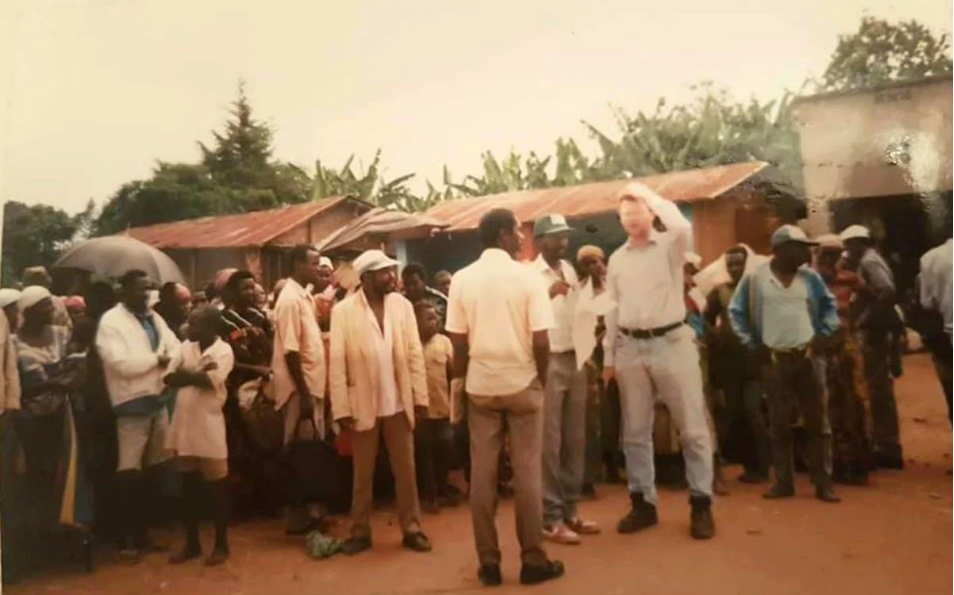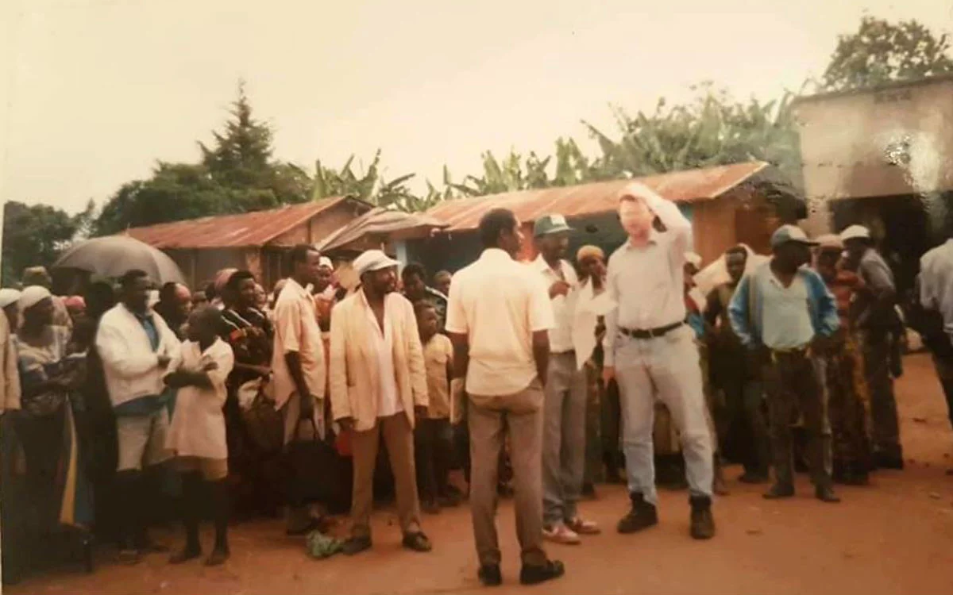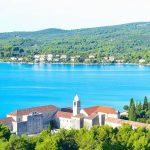April the 28th, 2024 – Despite the recent influx of third country nationals to the labour market, Croatia continues to be one of the whitest countries in the world. What is it like for black people living in Croatia? Some interesting feedback from various black residents.
When I was 19, I bought a one-way ticket to Caracas and went off to explore the world. My first stop was two months in Guyana staying with a Guyanese school friend, a wonderful country of great diversity. There were not many white folk around, and I remember walking past the market at dusk, when I attracted the attention of a group of local male youths who were loitering.
“Hey, White Boy, come on over here.” I felt a little initial fear, but as I had no cash or valuables, it would not be a very successful mugging. I sauntered over.
“Give me your arm,” said one. “I gotta touch that white skin to see if it is real.” And my arm was passed around. There was no threat, just a lot of curiosity.
My white (and increasingly pink) skin aroused plenty of interest in the remote parts of eastern Somalia and the hillsides of Rwanda during my aid worker years. I learned the Kinyarwanda translation of ‘black boy’, which I would bellow out when the kids called me ‘mzungu’ as I passed. They fled every time, then turned to laugh.
It was the same curiosity about another person’s skin colour that my mother experienced on the streets of Dublin as a 17-year-old in 1960. Born in rural Ireland, she had never seen a black person before and recalled how she just stared when she finally saw one walking down a Dublin street. And everyone else stared.
I had that same feeling when I brought a black real estate client to Jelsa in 2004. I could feel the eyes of every person on the square upon us. Was it a racist feeling or just curiosity? Looking back with hindsight, I think now it was probably the latter.
But I fondly remember my introduction to Jelsa society one late coffee morning.

Having just arrived from life in Kenya and Somalia, where I had a Kikuyu girlfriend who wanted to visit Croatia, a new Jelsa friend decided to take me from cafe to cafe to introduce me. And so I was paraded in front of the locals of each cafe as it was explained in Croatian:
“This is my new friend Paul. He is British and has bought a house in the old town. He will live here all year. He came from Africa where he had an African girlfriend. She is black and she is coming here.”
As a conversation killer, it was hard to beat. At least three people from that introduction have never spoken to me ever since and ignore me completely if I happen to be in the same space. Racist? I don’t think so. Not sure how to react to an unusual situation thrust upon them? Perhaps.
Croatia was once the whitest country in the world and a country which had just 0.7% of foreigners living in it, according to official statistics. I am not saying that is a good thing or a bad thing, it is just a thing. So what is it like to be a black person living in Croatia?
It is an article I have wanted to research and write for a long time. Apart from being a topic that is not written about much, I was certain it would bring up a few surprises.
And so it proved. I have spoken to several African people living in Croatia in the last few months. Their words are below, starting with the perspective of the black African woman.
Ever wondered what black people living in Croatia go through on the streets of Zagreb or even worse in the interior villages around Croatia? Would you say Croatians are generally racist towards Africans or no?
Most Croatians are actually very welcoming and very nice towards black people. Mainly because they are very few and are rarely seen in the streets. Living here for more than three years now I can confidently say that the majority of Croatians are NOT RACIST. However, there is the one per cent of the population that gets really excited when they see a black person in the streets, and they don’t know how to react or how to behave. I will cite a few examples of my encounters with the few ignorant people. Of course, as a black woman, my experiences are very different to those experienced by black men.
The biggest excitement comes from the Hair. Every time I have my natural hair I always end up in an argument. Mainly because people want to touch. The problem is that while some people are kind enough to request if they can dig their fingers into my scalp which depending with the situation I will say yes or no, and while I cannot say no to kids, some people don’t have the courtesy to ask. Once I was in the tram and I felt a hand inside my hair, I turned around and people behind me pretended they didn’t know what happened. In this case, all I can do is move to an empty chair far from anyone.
Another irritating habit is the requests or lack of requests for photos/selfies. Some people will approach and request for a selfie saying that they have never seen a black person, and this is an opportunity of a lifetime. However, some people are so ignorant that they don’t ask, they just come close and take a photo ignoring the fact that am not interested in the photo. Once I was at the main square and this woman comes with a big camera and zooms in front of my face without asking despite the fact that her friends forbid her and all she said was “What can she do”. Sadly enough I couldn’t do anything as I was out of time.
The most common and irritating incidents are always with stalkers. Yes, Stalkers, so common especially in Zagreb. And most of them are actually average looking normal people or you may think so. It mostly happens or starts at the tram stop. Once I was standing at Frankopanska waiting for a tram, I noticed a man three meters from me who was behaving oddly and looking at me strangely. So to be on the safe side, I took the tram which came soonest even though it wasn’t headed my direction. The man in question took it too, I moved to the front to ditch him but he kept moving. I got off at the next stop and he too got off. This happened with 2 trams more before I decided to take the tram home, went down to the nearest cafe bar and he kept walking outside until he gave up. This incident took around two hours of my life.
A similar incident happened to me twice in Zagreb and once more in Samobor. Of course, the safest reaction is to walk into a police station in which case the disappears at the speed of light. The worst effect of these incidents is the mental trauma, or stress that can make someone withdraw and refuse to go outside. These stories are common with most black women. Most incidences happen around tram stops, other public areas and inside public transportation. Black people living in Dubrava mostly experience worse stories on a regular basis.
The most vulnerable I ever felt was when a policewoman, off duty, asked me if she could touch my backside and I was in a dilemma.
Black men on the other hand always experience a different form of attention. Of course, no one will stalk them around but in the night clubs some young college girls always ask them some very specific and stereotypical questions. E.g. “Is it true that black men have large private parts” in a vulgar language of course. Then the girls go ahead to ask if they can see and touch.
Most black men say they mostly experience racism at the hands of police or immigration officers. At the airport despite having proper Croatian documents, the immigration officers always spend a lot of time just trying to intimidate them. When a Croatian woman marries a black man, the society is not so welcoming of the man as opposed to when a Croatian man marries a black woman. Black men are always and constantly reminded that they are “stealing our women.”
One of my friends lives in Zagorje and every time he tells people that’s where he lives, then they burst out laughing and he doesn’t know why. All they say is “imagine a black man in Zagorje.“
In conclusion, few people around Croatia are very ignorant and their actions cannot be used to judge if Croatians are racist or no. Most Croatians appreciate it when a black person speaks to them in Croatian and automatically the barrier is broken.










